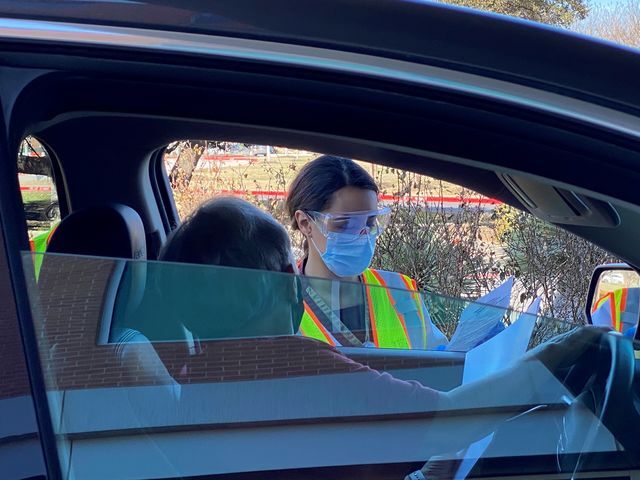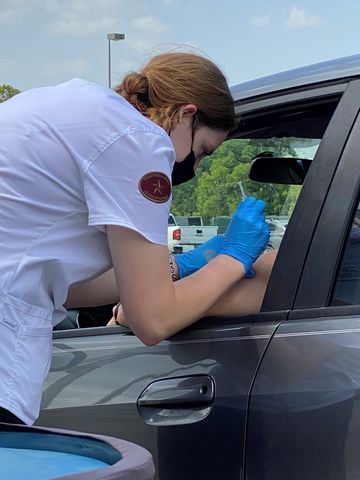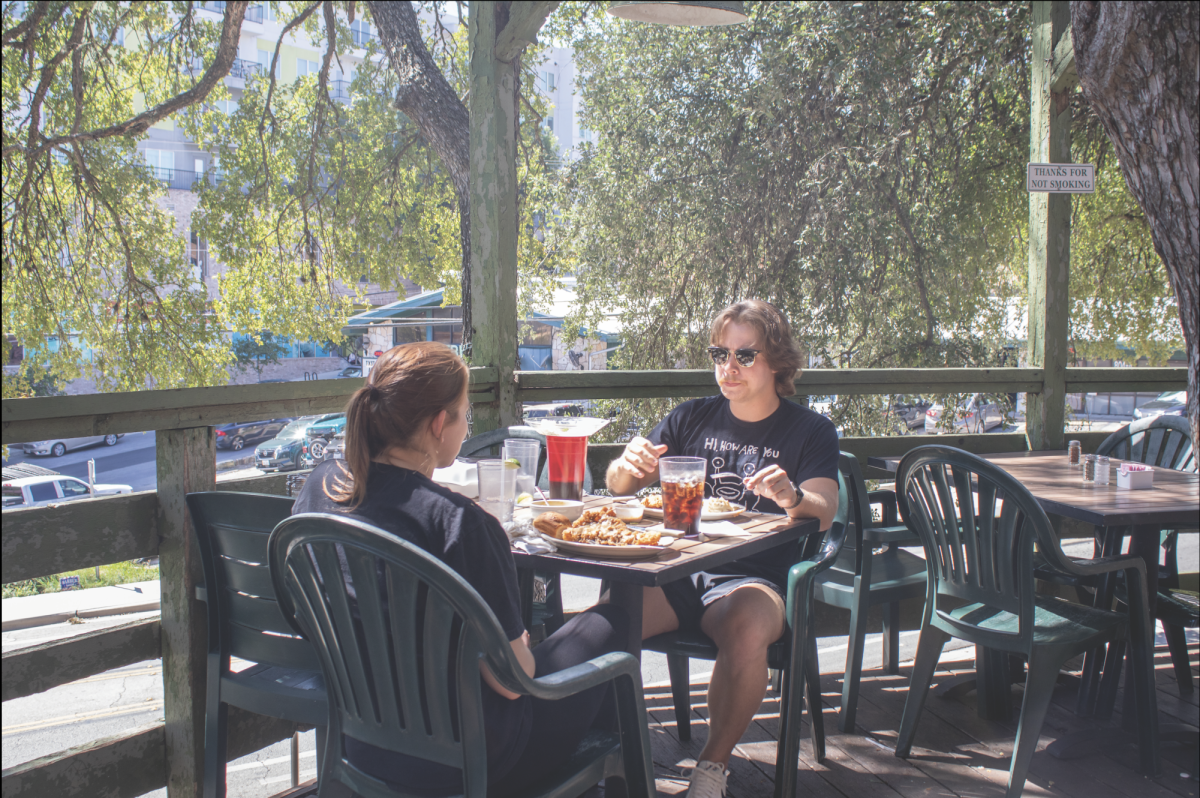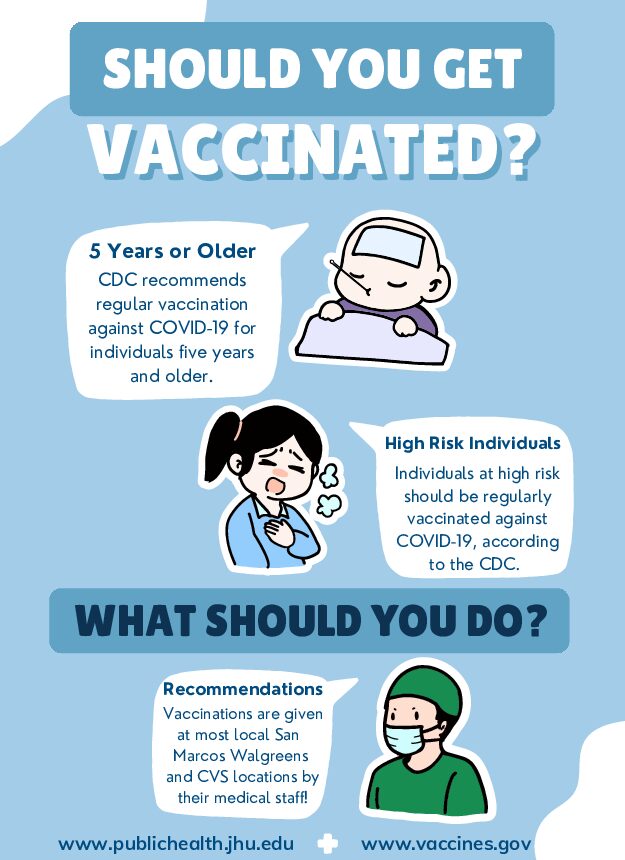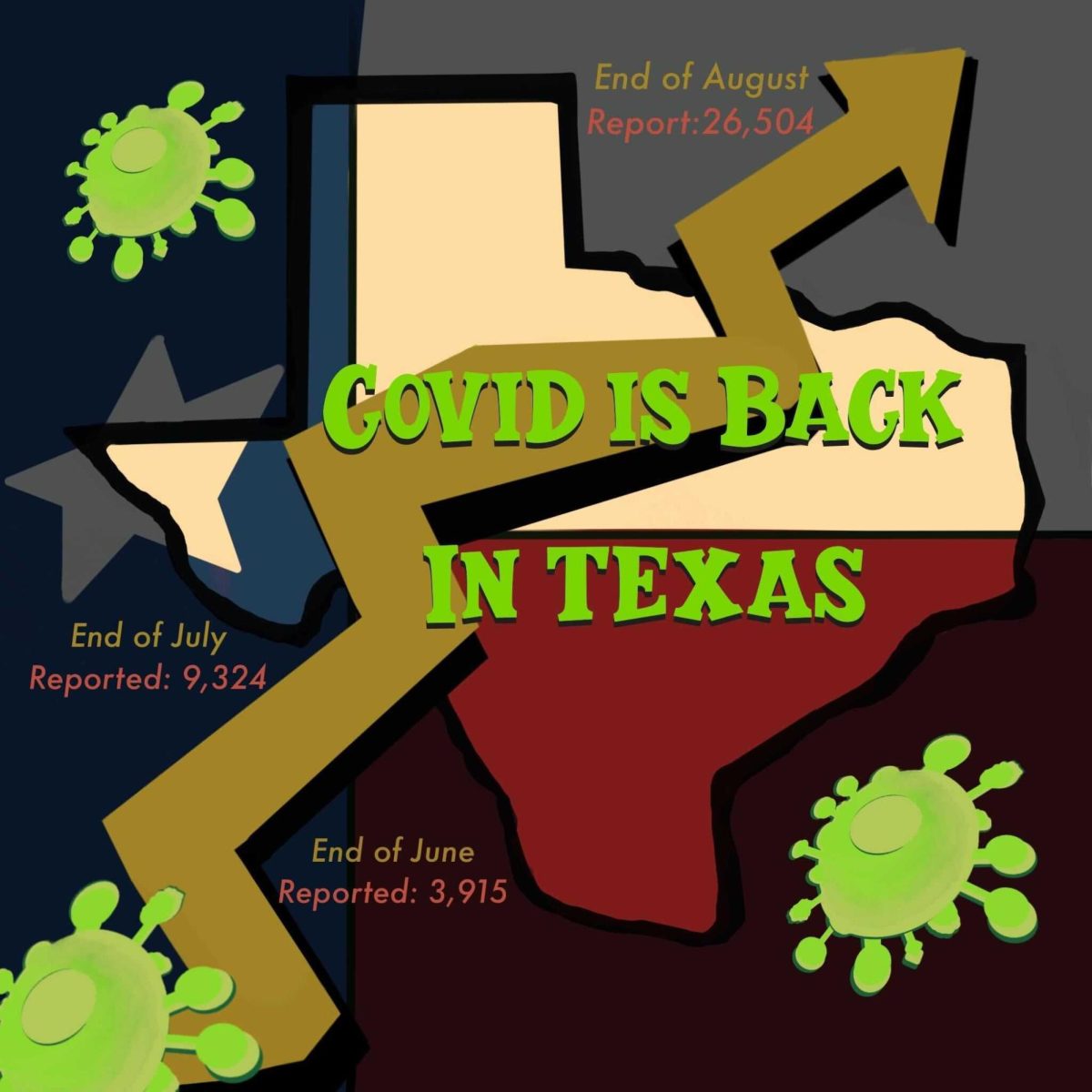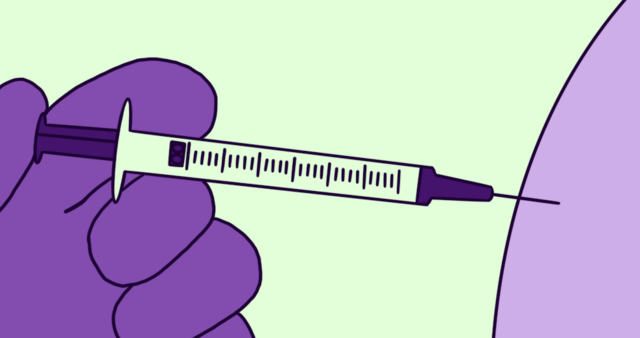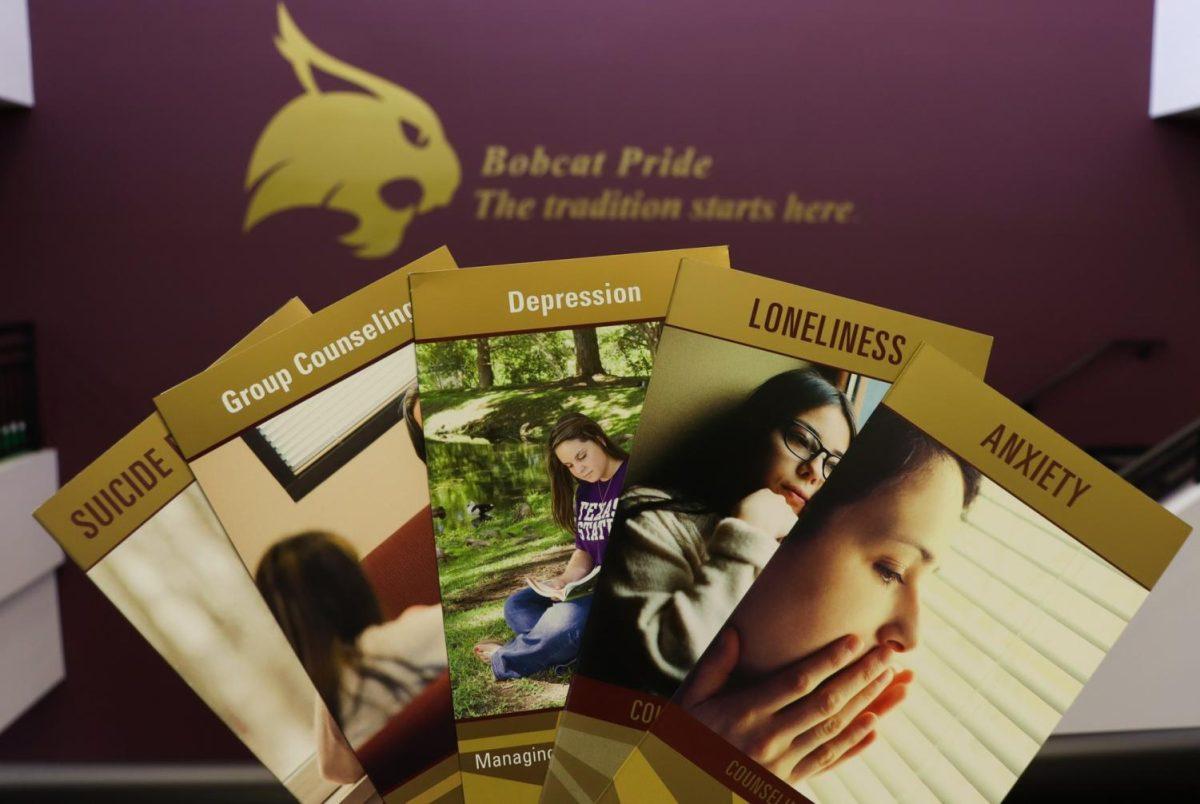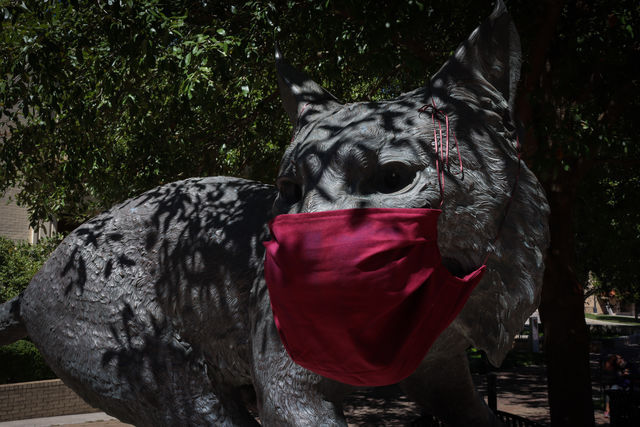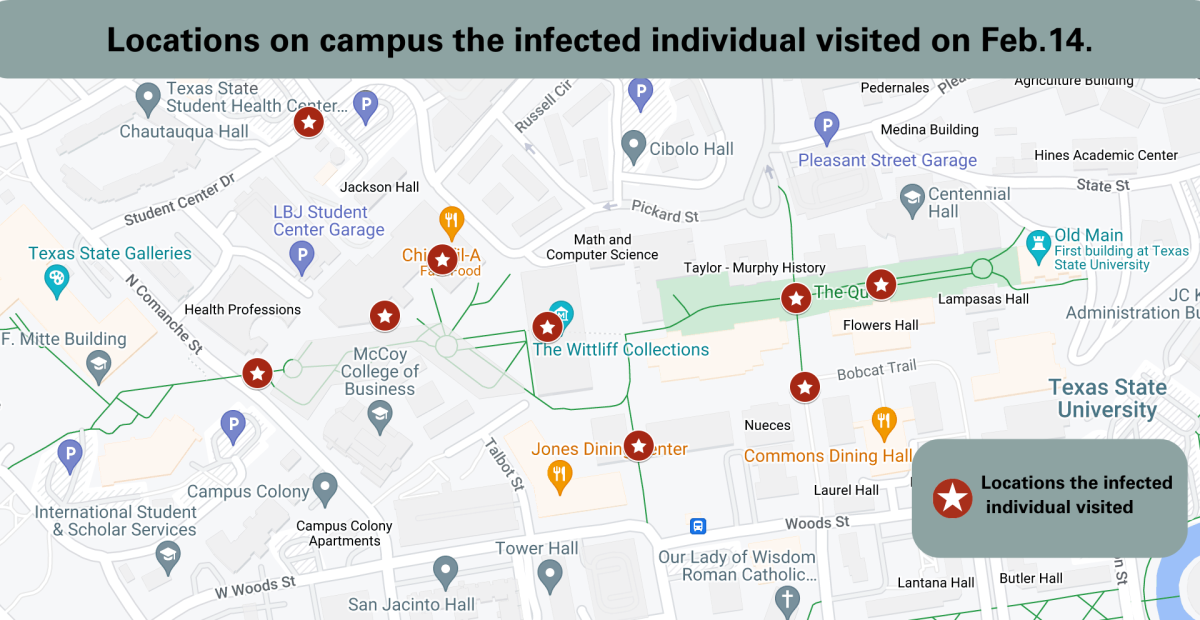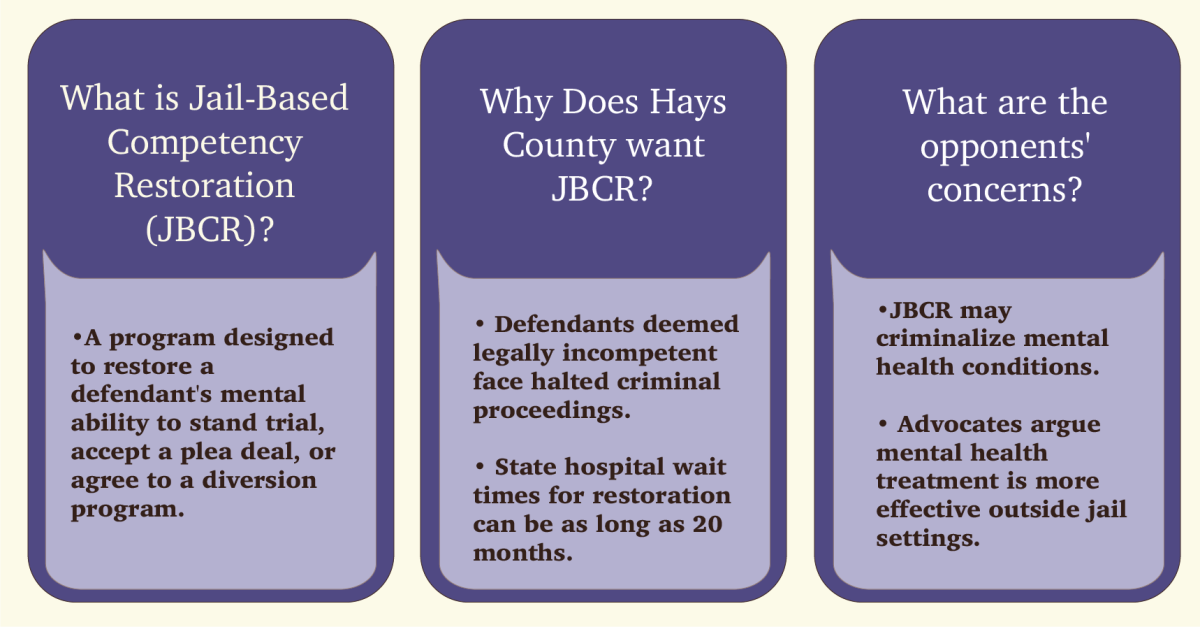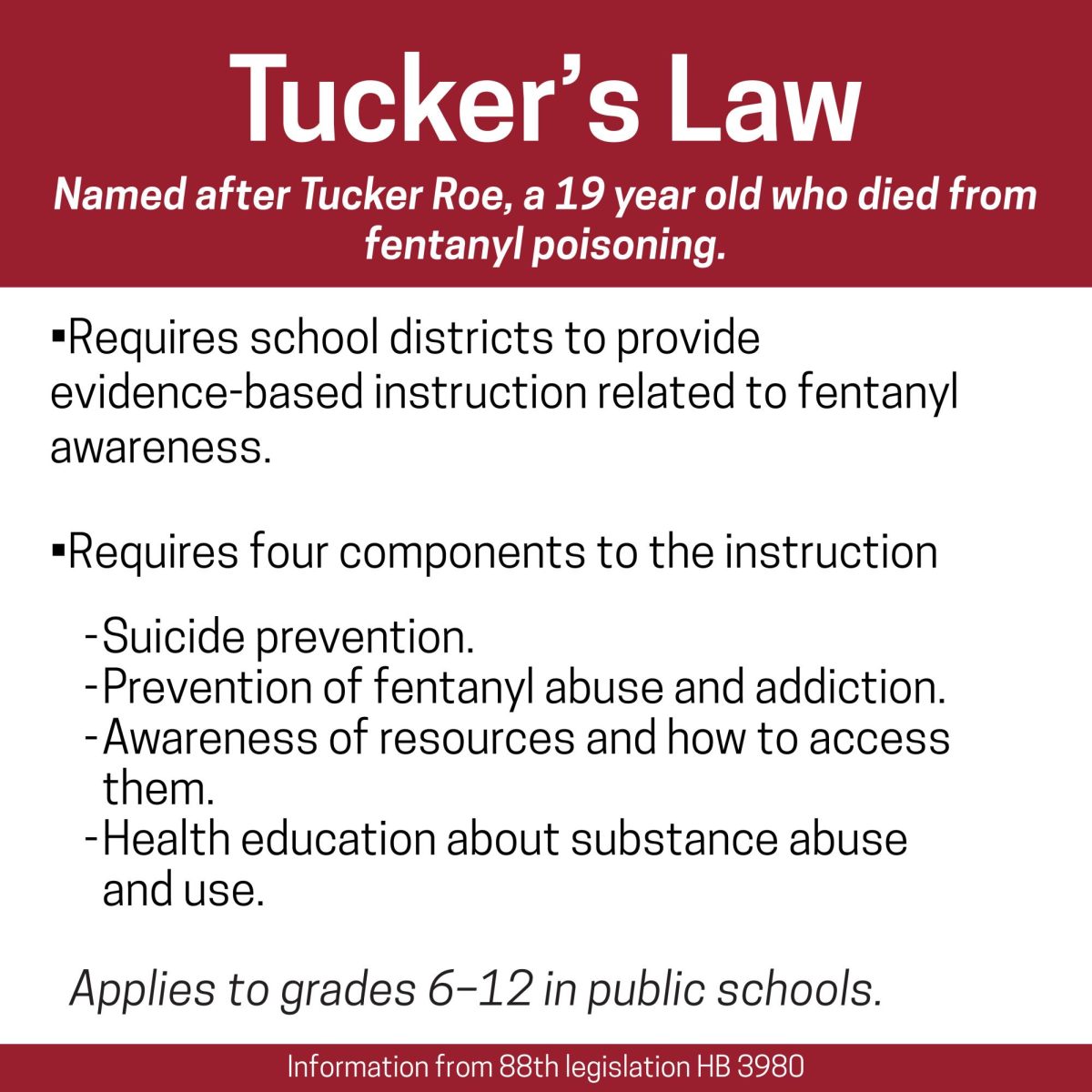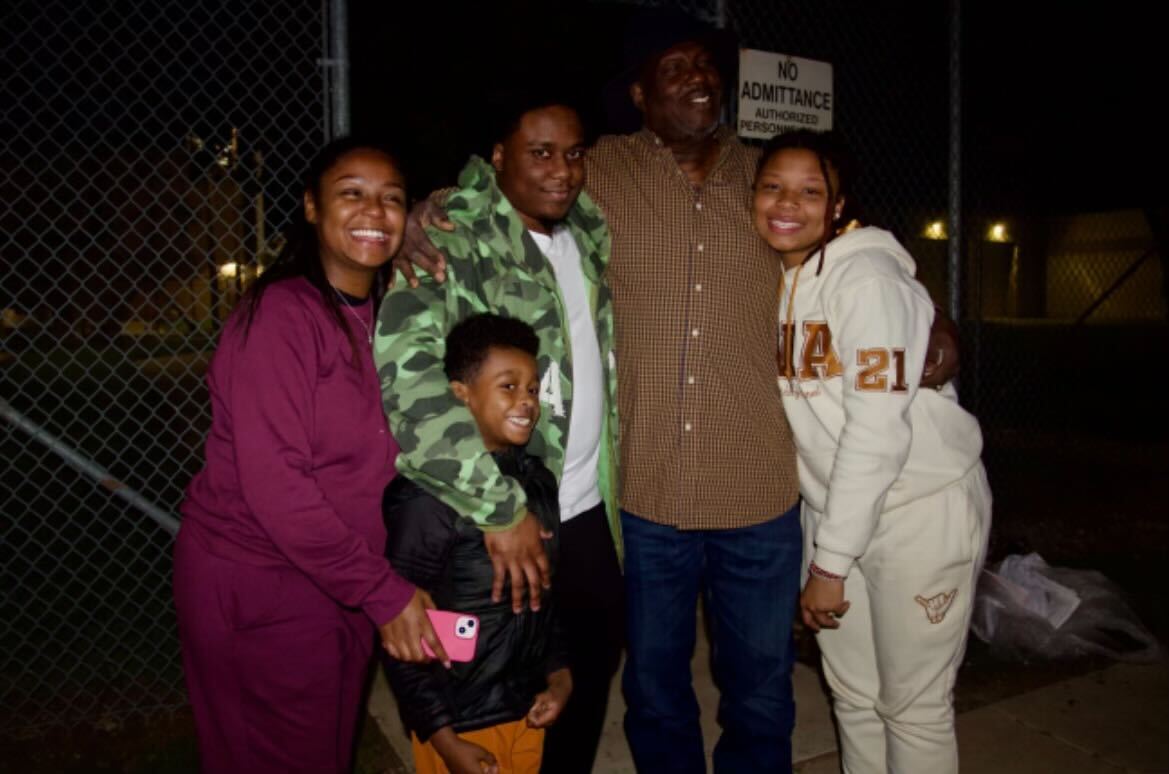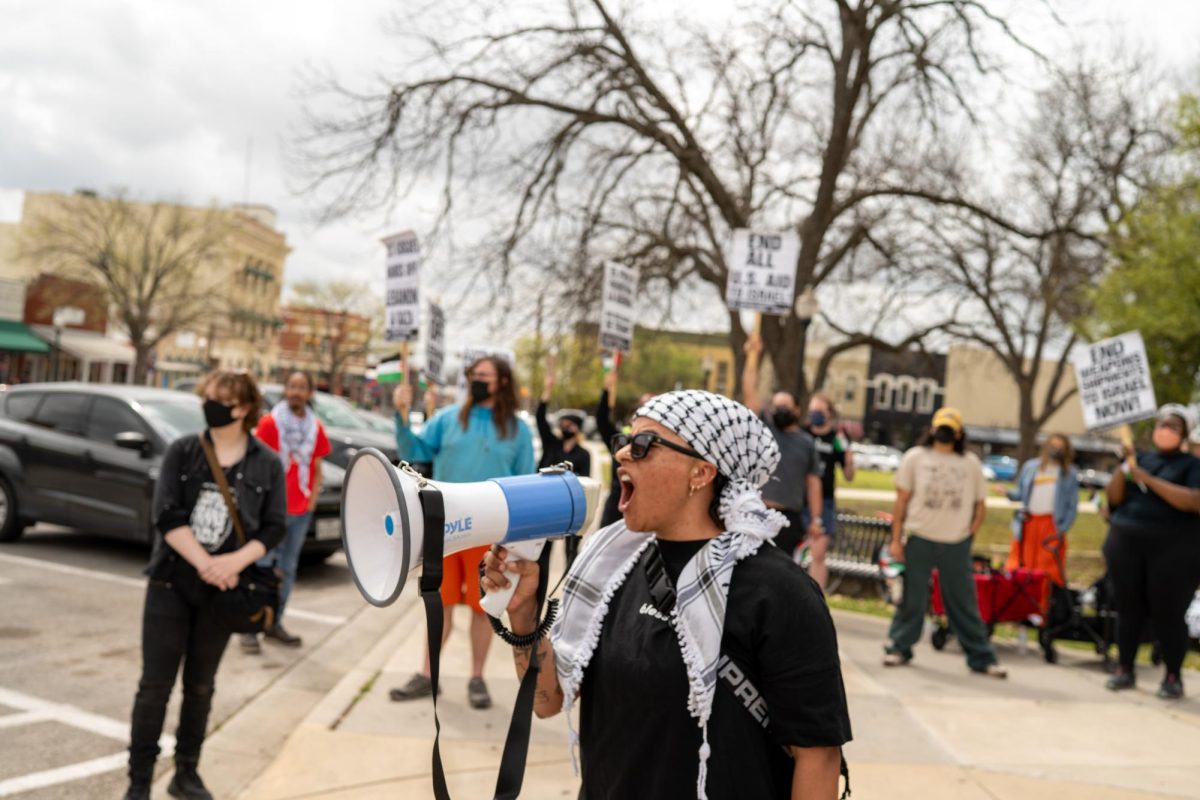With COVID-19 vaccines becoming readily available throughout the state, nursing students and faculty from Texas State’s Round Rock campus are playing an active role in administering vaccines throughout the university’s surrounding areas.
Partnering with Baylor Scott & White Health, nursing students and faculty at St. David’s School of Nursing at Texas State – Round Rock have administered vaccines through drive-up clinics. The school’s goal is to ensure many of its students are offered the opportunity to volunteer and provide vaccines to the public.
The partnership came to fruition after Dr. Marla Erbin-Roesemann, director and professor at the School of Nursing, asked the chief nursing officer of Baylor Scott & White Health if nursing students in the area could volunteer at vaccination drives since students were already at risk working on the frontline.
Students administering vaccines do not have to be registered nurses. However, faculty or nurses must supervise students, including when students are observing vaccine administration.
Erbin-Roesemann says students who volunteered were vaccinated beforehand on behalf of the nursing school’s healthcare partners.
“I’m thankful for my students and my faculty who stepped up, answered the call to volunteer and also for our partners that have been willing to actually allow us to have the vaccine,” Erbin-Roesemann says. “So, we feel that our students and faculty are protected.”
Mariana Jacobo, a nursing junior, volunteered at a vaccine distribution clinic after she received her own vaccine provided by the nursing school. Jacobo says the environment in which she volunteered excited her and her fellow healthcare workers.
“When I volunteered, I got vaccinated, but other people didn’t [volunteer],” Jacobo says. “It wasn’t a requirement to volunteer, I just was like, ‘Well, might as well give my time to this good cause.’”
COVID-19 may be a daunting time for a budding nurse to start their career, but Jacobo did not second guess her path once it hit. Instead, she embraced the difficulties frontline healthcare workers face during health crises.
“I thought that it was like the best way to serve people,” Jacobo says. “And I think there’s many ways in which it’s not attractive, because we kind of have to be there for the people in their lowest points, and we have to help them with the most basic things that they cannot do anymore. A lot of people, they might not be attracted to that.”
According to the Texas Department of State Health Services (DSHS), over 14 million doses of COVID-19 vaccines have been administered across the state and over 5 million Texans have been fully vaccinated. With progress made in the state’s efforts to tackle the virus, faculty members such as Monica Hughes, a clinical assistant professor at the School of Nursing, also acknowledge the efforts of nursing students who adapted to curriculum changes this past year.
“This semester, these students, these seniors, are surprisingly resilient. I think because of being thrust into it so quickly in March, and then being forced to make a huge [change],” Hughes says. “Our whole program is face-to-face, and [the nursing program] didn’t offer any online courses in our undergraduate program before this. I think they’ve done a remarkable job, actually.”
Hughes herself has transitioned to online classes as she works to receive a doctorate of nurse practice in a Chicago-based institute program. She identifies with many of the difficulties students have faced during COVID-19.
When doses of the COVID-19 vaccine began to roll out, Hughes’ says it was difficult to control her emotions. She witnessed a nurse receive a vaccine for the first time, recalling the emotional turmoil many of her colleagues went through before a solution to the global health crisis arrived.
“On the day that we saw the first nurse receive her vaccine, it was a pretty emotional feeling…To have seen this pandemic roll out, and then to see something happening that was finally going to make a difference,” Hughes says. “You see so much loss and so much trauma for our caregivers and for the nurses who are in the [intensive care units] in particular, just what they’re living through is just truly unprecedented.”
The demand health care workers across the nation have faced during the pandemic solidified Hughes’ belief in the need for more assistance in public health, given the reality of how many hospitals exceeded their capacity limits.
“I have felt an even more pressing urgency that we can’t keep going down this road; we have to do something different,” Hughes says. “It’s time to invest in our public health infrastructure; it’s time to invest in our public health, training and workforce; it’s time to make this a priority for our country.”
Texas State nursing students and faculty will continue to assist in local vaccination efforts and are expected to volunteer at the university’s upcoming vaccination drives from 9 a.m. to noon and 1-4 p.m. on April 13-16 at the LBJ Student Center.
Categories:
Nursing students, faculty assist in vaccination efforts
Ricardo Delgado, News Reporter
April 16, 2021
A St. David’s School of Nursing student goes over vaccination paperwork with a patient during a drive-thru vaccination clinic.
0
Donate to The University Star
Your donation will support the student journalists of Texas State University. Your contribution will allow us to purchase equipment and cover our annual website hosting costs.
More to Discover



